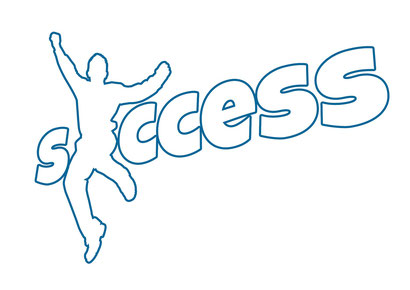When I was a Recruiter, it always surprised me how few people I offered a job to, negotiated their offer terms. I never actually tracked it myself, but Glassdoor.com ran a survey a couple of years ago that found almost 60% of all the respondents did not negotiate. Additionally, the proportion of individuals who didn’t negotiate was even higher among women and older survey respondents. There are several factors on why this might be.
For one, we live in a culture in which we are more prone to accept the terms of a deal. Think about it. When was the last time you haggled with a store manager on the price of something? Really, the only purchases made by an individual where negotiating is considered “standard practice” is when you purchase a car, house, or something at the flea market. For everything else, we are apt to accept the terms of an offer, as is.
Secondly, if we have been out of work for an extended period of time, we are so happy to receive an offer that we’ll say yes to just about any offer we’ve been given. This is especially so if it is near the salary figure that we already have in mind.
A third factor is that we feel like we don’t have any leverage when we are between jobs. Because of this, we fear that if we try to negotiate, the offer might be withdrawn. In all my years in Recruiting, I’ve never see this happen, but it’s a genuine fear that candidates have.
Finally, many people don’t negotiate because they have a high level of the Agreeableness personality trait. They don’t want to rock the boat and would rather go with the flow. They are non-confrontational by nature and will only push back if the offer is unreasonable.
The problem is, if you don’t negotiate, you’re in all likelihood leaving money, and other terms, on the table. This has a long-term effect.
The Impact of Not Negotiating

If you never negotiate your job offers, there are some significant harms to your life-time earning. This is just a sampling:
1) It affects your annual salary increases. When you have your annual review, your boss gives you a percent increase of your salary. Logically, if your salary is lower, you get less in real dollars and cents as a salary increase. That builds up over time at each review period.
2) It impacts how much you’re able to receive in possible bonuses. Just as not negotiating hampers your salary increases, so to does it hamper the amount you’re able to receive as a bonus for doing high level work because it’s typically based on a percentage of your salary.
3) It plays a role in determining your salary for internal promotions. I have personally confronted managers who resisted bringing someone they were interested in promoting, up to the minimum of a pay range of a position. Why? Because it would have increased that person’s salary by more than 25%. Some companies even have a policy of not increasing an individual’s pay by more than a certain percentage. So if you accept an offer that puts you at the lower end of the pay range, you could be shooting yourself in the foot if you want a promotion.
4) It sets a mental baseline for a new job with a new employer. When you are seeking a new job, what’s the first thing you think about when considering what’s a reasonable salary? Your current salary. Having this in mind limits how much you’re willing to push when it comes time to negotiate.
With all this in mind, I want to stress to you. You should always negotiate. Even when you’re satisfied with the initial offer. Within reason, you should always ask for more, even though most times you won’t get everything you ask for, you’ll still get more than had you not asked at all.
Though we all think of negotiation at the end of the hiring process. It actually starts way before that. So we’ll talk about how you set the negotiating table from the very beginning and close the deal at the end.
Market Your Value with Your Resume & Cover Letter
Your resume and cover letter are marketing documents that are designed to persuade. What are you trying to persuade or convince the employer?
1) That you can immediately add value based on how you’re knowledge, skills, abilities, and work experience match the job description. Provide examples and tell stories of how you’ve “been there and done that.” If you’re just getting out of school, highlight your knowledge and skills to show your potential.
2) Prove that you’re an expert. This gives the hiring manager the sense that you’re an authority on a subject matter. Who do people follow? Authority figures. Putting yourself in this position is a good way to start.

Sell Your Value in Your Interview

First off, NEVER give the interviewer your salary requirements if you’re asked about them in an interview. Why? Because you instantly lose your negotiating leverage. Even giving them a range hurts you. Still, you have to answer their question in some reasonable way.
Here are some suggestions:
- I don’t know enough about all the job requirements to know what sort of salary to pursue.
- I need to see the entire compensation package before discussing salary requirements.
- I’m not here to discuss salary today, I’m here to talk about my experience and qualifications and what I can do for your company.
Each of these responses answers the question without giving the interviewer the information they want, which is “how low can my offer go?”
Beyond this, how do you want the interview to go? You want it to extend your position established in the resume and cover letter – after all, the reason they called you in the first place is because they were intrigued by what they read. Now is the time to reiterate what you’ve already made a claim to and to expand your value even further. The key to this is to be prepared. Read the job description over and over and make sure you have examples to the requirements for the job. Also, if at all possible, try to network with someone who works for the company, works in the same industry, or has the same job role. This will give the opportunity to gather some vital information about what other things might be important to the hiring manager that isn’t stated in the job description.
Finally, do your research and find out what the salary range for the position might be. Good places to go for this information is the Department of Labor’s O*Net, Glassdoor.com, Salary.com, and Indeed.com. Why do this before you go in for an interview? Because, while you don’t want to spill the beans on how much you’re looking for, sometimes the interviewer slips up and give you a pay range for the position. Having knowledge of what would be a fair rate based on your research and your experience gives you a good idea of how much of a challenge your future negotiation will be. You’ll go into it with eyes wide open and ready with evidence.
Establish Your Value in the Offer
Great! You got a call from the Recruiter or Hiring Manager. They want to hire you! Over the phone you hear the salary, benefits, time off, etc. of the offer. And then they ask, “Would you like to accept?”
This is that awkward moment when a lot of people, who are happy to receive an offer that’s relatively close to what they would like to earn, quickly says yes. This is a mistake. Even if you’d be satisfied with the amount, you’re always much better off responding by saying, “Thank you so much for the offer! I’m really excited about the opportunity, but I’d like to take some time to consider it first. Can you give me a couple days to review it before I give you an answer?”

In all my experience, I’ve never told someone that they had to make a decision immediately and I’ve never been told as a job seeker that it was either today or never.
Why is it important to make them wait for an answer? Because you’re putting time on your side. It makes the employer unsure of what you’ll do and it also delays the process to a point where they may lose another candidate, so they become more committed to you.
Now that you’ve bought yourself some time to think and consider the whole offer, use it to calculate your counter-offer. There are two ways to look at it.
If the offer is above your minimum requirement, you should counter with at least 10% higher than their offer, anything lower doesn’t push the boundaries enough to see how high you can take it. Depending on how aggressive you feel (based on how badly you need the job and how badly they need you) you can counter even higher – up to 20% of the initial offer. Don’t go beyond the range you’ve discovered through your research. Then it feels to the employer that you are being unreasonable and disingenuous.
If the offer comes in below your minimum requirement, then your goal (if you really want the job) is to get the salary up to at least your minimum. Again, it should be at least 10% higher than initial offer. Then calculate how aggressive you feel you can be and see if you want to push for more than that. If the offer is more than 10% below your minimum requirement, simply respond that you can’t go any lower than X dollars. If they can’t meet that after your counter offer, then you know precisely what to do.
Also consider other areas where you might be able to negotiate. Such as start date, date of your first review, one-time sign-on bonus, paid time off, your shift hours, or even the equipment or software you use. Everything is open to negotiation. Plus, having more than just salary to negotiate can give you something you can cede to the employer during the negotiation. For example, “I can take a lower salary if you can offer me five additional days of PTO.” Another possibility is that maybe your salary is lower, but if you started on a particular date, you’d get benefits coverage a month earlier, which might actually save the same amount you lose in income that first year.
Make It Win-Win and Never Lose a Negotiation

Ultimately, the goal of a negotiation is to make it so that both you and the employer are happy with the outcome. In your discussion of the counter-offer you’ve come up with, give the employer an opportunity to work with you to find a solution. Don’t just make demands. Tell them something like:
“This is what I’m thinking, but I’m open to your ideas. Let’s figure out something together that we can both be happy with.”
This puts the conversation into a give and take frame where you are both working together towards a compromise. Being a hard-ass only makes the person on the other side of the negotiating table dig in their heals and might even make them resentful of you and your approach, which will have an impact on your career with them.
So be pleasant, demonstrate how you want to work with them, and show your enthusiasm for the the job and company. This will go a long ways towards getting what you want. Then it’s time to give them your logic.
Pull out all that research you’ve done to explain why you think your counter offer is fair. Reiterate all the knowledge, skills, abilities, and attitudes that make you the perfect fit for their job. And make a final sales pitch that explains what you can do for them on Day One and beyond.
Are you going to get an immediate “yes” when you counter-offer? It’s unlikely, because the person you’re negotiating with rarely has the final say. Usually, they will have to take your counter-offer to someone else higher up who has the final say. Because of this, we strongly recommend that at the end of the conversation, you inform him or her that you will send an email summarizing your counter-offer, compromises, and the logic you’re using to come up with your positions. Why do this? Because when he or she goes to the person who makes final decisions, they won’t forget anything you discussed. Often, they will even forward your email to them. This way you have a chance to advocate for yourself directly to the decision-maker.
Eventually, you’ll get a final offer and will have to decide “yes or no.” If it’s above your minimum requirement, but below what you countered with, you’ll have to determine if the job and company is something you are really excited about and furthers your career in a direction you desire. If the final offer is still below your minimum requirement, you’ll have to say no. If you do turn down the offer in the end, don’t burn your bridge with the employer. Instead, thank them very much for the opportunity, but unfortunately it doesn’t look like it will work, and request that they keep you in mind for any other opportunity that might be a better match.
The truth of the matter is, the worst case scenario is that the employer doesn’t budge on their initial offer. In which case you didn’t lose out on anything. But more than likely, you’ll be getting more than had you never asked in the first place. That, my friends, is worth the risk. So…always negotiate…like a boss!
About RockIt Career Consultation Services
At RockIt Career Consultation Services, our mission is to help you discover your true strengths and use these strengths to set your course to something more rewarding and exciting in your career.
We will guide you on what job or career best suits you and then help you market yourself through your resume, your networking strategies, your interview skills, and your negotiation to ensure that you are doing something you love and are maximizing your earning potential. Throughout, we will be there to keep you motivated and determined.
We’d love to help you launch your career and encourage you to learn more about the services we can provide you on your path to a more prosperous future. With our help, you will become the applicant every company wants to hire!

